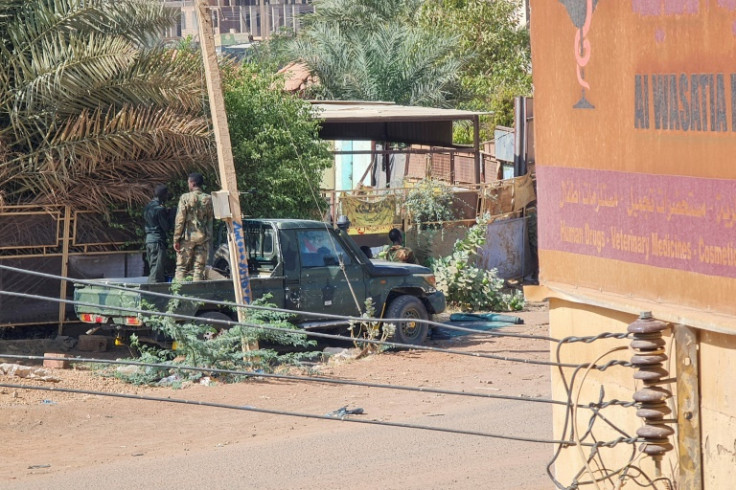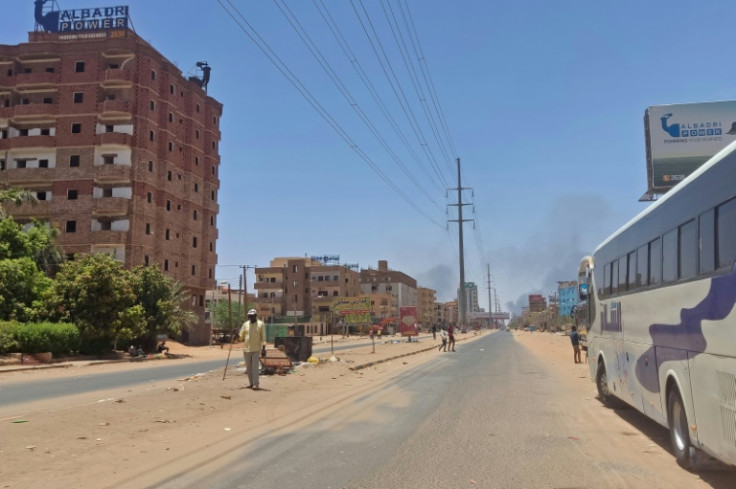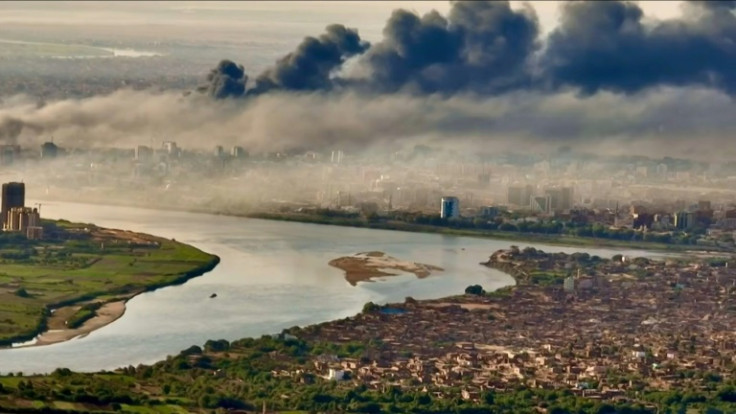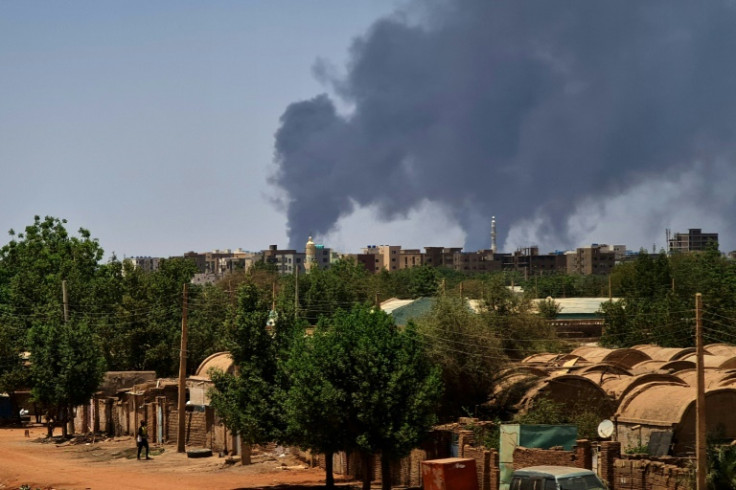In Search Of Sudan's Missing Amid Chaos Of War

As fighting raged in Sudan's capital, Ayman Abu Arki and his uncle Hossam went out "to go buy some water" for the family, but then stopped answering their phones.
Their panicked family, desperate for news, kept dialling their numbers but then turned to social media, as many others have done to search for those missing amid the bloody chaos.
The numbing response finally came back from a Facebook user: a photo showed two lifeless bodies inside a bullet-riddled car, the licence plate matching that of the family vehicle.
The two men died on the second day of the battles that have rocked Khartoum since April 15, and which have since claimed hundreds of lives and left untold numbers unaccounted for.
The unrest has pitted the army, led by Abdel Fattah al-Burhan, against the paramilitaries of the Rapid Support Forces, commanded by his deputy turned rival Mohamed Hamdan Daglo.
The fighting took the capital's five million residents by surprise, and many were unprepared to survive for weeks on the stocks of food and other basic goods they had at home.
Some of those who ventured out to buy water and food never came back, and relatives fear the worst as bodies lie in the streets while gun battles and airstrikes continue into a third week.
Heba, a doctor, is also among those who have turned to online platforms such as Facebook and Twitter, for news of her father, who has been missing since April 23.
He left that day to buy vital medication "but he never came back", said Heba, who preferred not to give her full name.
"I just hope he is safe and sound."
To help those desperately searching for missing relatives and friends, the International Committee of the Red Cross announced it had set up a special hotline to report disappearances.
Volunteers have also staffed the Mafqoud (Missing) online project, first set up to report disappearances in 2019 which pro-democracy protesters blamed on forces loyal to Burhan and Daglo following the dispersal of a mass sit-in.
According to official figures, more than 500 people have been killed since the conflict began and over 4,500 wounded, although the real toll is feared to be much higher.
He said the project handled "100 to 150" phone calls a day at first, although this had dropped to about 15 daily.
Some of those missing were ultimately found alive -- many either being held by the armed forces or the RSF. But in many other cases, the agonising wait continues.
Another resident of the Sudanese capital sheltering from the war, Munira Edwin, said she had last spoken to her older brother Babiker on the first day of fighting.
Babiker, who worked at a Coca-Cola plant in a northern Khartoum suburb, phoned her when the fighting started "to ask me to tell his wife and six children that he was fine," Edwin said.
Babiker said he was leaving the factory and returning to their home in the capital's twin city of Omdurman, across the Nile, before communications abruptly stopped.
What followed was a long stretch of silence, during which Edwin contacted the Mafqoud project. When they called her back nearly two weeks later, Edwin's worst fears were confirmed.
"He had been found dead with two bullets" in his body, she said, struggling to hold back tears.
"We were in contact with the imam" who was guarding the body in the hope that the family would be able to retrieve it, she said.
But, Edwin recounted, "when two of my brothers tried to look for the body, the army forces at a checkpoint forced them to go back because of the fighting in the area".



© Copyright AFP 2025. All rights reserved.





















